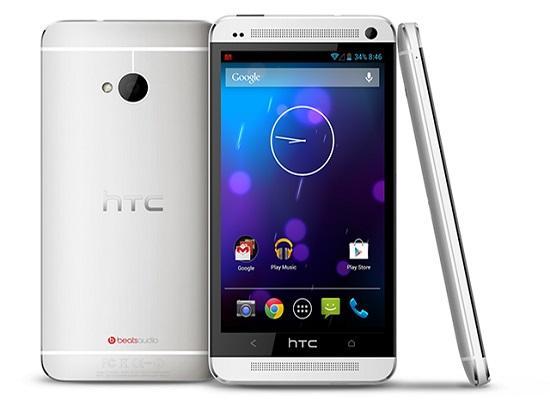
Shortly after Google's Hugo Barra took the stage at I/O a few weeks ago to taunt a Samsung Galaxy S 4 running stock Android, questions were inbound from every direction. Would Samsung make any other devices running stock Android? Was this the end of Google's Nexus smartphones? If so, would Google be partnering with any other manufacturers to deliver stock Android on flagship hardware?
Most of these questions were extinguished by the time an announcement of a white LG Nexus 4 was reported by our news hound, Alex Wagner, and also the possibility of a Google Edition HTC One.
Needless to say, I'm pretty stoked for the possibility of HTC and Google releasing the One running stock Android. If you look back at their partnership, Google's Nexus One still remains a highly desirable piece of tech. Remembering how epic the Nexus One's specifications were back when it was released left very little to be desired.
But most importantly, Google and HTC spawned a very strong following by marrying the best hardware with Google's unadulterated mobile OS. The result was the beginning of what is more than simply a "stock Android experience" as many have quickly associated GE devices with.
However, even if more devices are released with stock Android in tow, they will not truly be Nexus devices. These GE's are simply different ways of getting AOSP into the hands of more people and issuing timely updates at any price point. Think Chromebook Pixel.
Nexus is a brand of its own accord which has been through many shapeshifts throughout the years. As we've learned from past devices like the Nexus 4, Google is focused on delivering the best hardware experience accentuated by consistent software updates at the best price. Nexus is about what's possible with Android. Google Edition is about working together for AOSP.
Only recently have we learned with the Nexus 4 that Google is going the "budget route" by keeping off-contract price tags low (most likely in response to the Nexus 7's reception). Stock Android and constant updates are bonuses of the hardware. Comparatively, GE devices are all about the hardware options available and don't prioritize price.
If you add in the fact that TouchWiz and Sense will be absent from any GE-spec device, you begin to realize how important the hardware really is to the entire Google Edition recipe knowing you can get the same experience on a rooted regular Galaxy S 4, or even Nexus 4.
And that's where I'm drawing the line between any "Google Edition" device in 2013 as compared to the Nexus brand. GE devices are simply stabs at highlighting top-tier hardware with the stock Android experience in a time when mobile software development is moving too fast for carriers to admit. The Nexus brand remains a marriage of specific software optimizations and hardware standards which highlight each device as Google intends.

I've written in the past about how Google could release the next Nexus and truly surprise me. My perspective was central to the hardware experience much to the displeasure of anyone who believes Google's devices are for developer's and the software only. Google's Nexus brand is subject to specific hardware requirements, with the most notable being on-screen buttons, but on-board storage and an unlocked bootloader have joined in on the argument for a "Nexus-like experience".
While I agree the possible release of a GE HTC One is more a foray into unknown territory for Google, it can only help the Taiwanese company. But at the tend of the day I think Android running on top-tier hardware Google's Nexus 4 will prevail. Nexus remains a brand with its own agenda judging by how different each Nexus smartphone has been from one another in the past. There's a reason for hardware requirements; it's what the search giant says works. Even though each variation has been designed differently, you'd notice some similarities through the models. Bare bones Android without Sense or TouchWiz optimizations will likely have camera quality and display color issues on new hardware, something software tweaks each OEM does without you even knowing but absent from GE devices. The gap between the two widens when you consider how Google devices have become synonymous with value, something a $650 GE price tag demands, and a Nexus 4 scoffs at. Based on price alone, GE and Nexus are almost incomparable.
However, there are still debates left open for discussion. How do you think Nexus is affected by these mislabellings? Is it hurting or highlighting Google? Did Google purposely release GE devices to highlight the benefits of stock Android and value of its Nexus brand? What would happen if a GE device outsold its customized counterpart? You know the drill - take to the comments below! Let's try and make sense of these Google Edition devices!
Images via IGN and My Android Chief.